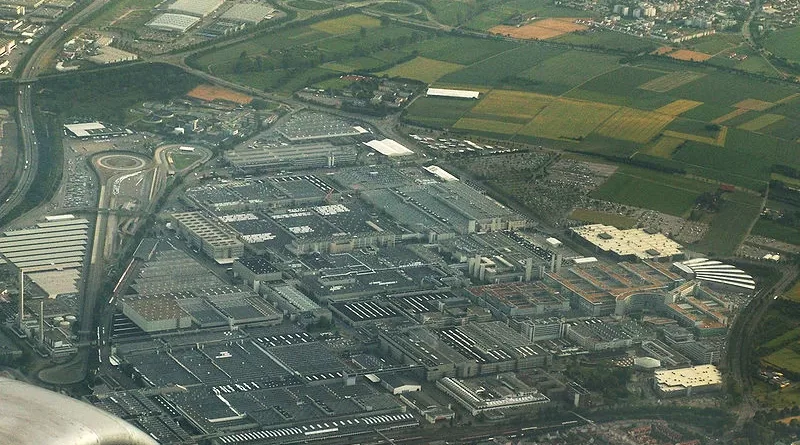German Carmakers Partially Shut Down Amid Semiconductor Shortage
By EurActiv
By Oliver Noyan
(EurActiv) — The German automotive industry is continuing to struggle with a severe supply shortage in semiconductors, while national and European authorities are trying to boost local production capacities.
The supply shortage is forcing Daimler to send thousands of employees on short-time work at several locations across the country, the car manufacturer announced on Tuesday (27. July). The lack of semiconductors has also affected car giant Volkswagen, which suffered major sales losses.
In the first quarter of 2021 alone, around 100,000 vehicles could not be produced due to the bottlenecks, resulting in a €2.5 billion loss in sales.
Semiconductors are essential for the automotive industry because “almost all functions in the vehicle are based on electronic control by semiconductors,” Joachim Damasky, managing director of Germany’s automotive industry association VDA, told EURACTIV.
With the shift to e-mobility, the problem could become even more acute because “demand will continue to increase significantly in the coming years,” Damasky added. Other industries are also concerned, however, as a study by digital association Bitkom points out, 94% of German companies depend on various digital imports.
Microelectronics form the basis for the economy’s digital transition and the shift to Industry 4.0. “Microelectronics is the basis for future innovations in almost all areas of application in Germany’s core industries,” an economy ministry spokeswoman explained.
It is thus “crucial to expand capacities in Germany and Europe” in order to “strengthen digital sovereignty and the competitiveness of the European economy,” she continued.
Europe’s ‘digital sovereignty’
There is broad agreement in both Germany and the EU on the need to reduce dependence on American and Asian producers.
EU Internal Market Commissioner Thierry Breton reiterated on Tuesday (27 July) the need to give a stronger push to the EU’s sovereignty when it comes to semiconductors.
Europe has fallen far behind in terms of producing semiconductors. Over the past 30 years, the EU’s share of global production fell by 35% and is currently stagnating at 9%, mainly due to competition in Asia, where production is 30-40% cheaper.
To stop this “dangerous dependence” on individual suppliers and strengthen the EU’s “strategic sovereignty”, Wolfgang Niedermark of the Federation of German Industries (BDI) is calling for the “lost” capacities and competencies to be brought back, with state support.
How semiconductor production is to be brought back
Both at the EU and national level, support packages have already been put together and initiatives launched to bring semiconductor production ‘back to Europe’.
At the start of July, the European Commission launched an Alliance on Processors and Semiconductor Technologies to strengthen production capacities in Europe and move closer to the goal of doubling Europe’s market share in semiconductor production, which is anchored in the Digital Compass.
In addition, Germany has earmarked €1 billion for investment and innovation in semiconductor production until 2023 as part of the Important Projects of Common European Interest (IPCEI) in the field of microelectronics.
New semiconductor facilities
European and German efforts already seem to be bearing fruit.
In June, German company Bosch opened the first fully digitalised semiconductor factory in Dresden, often referred to as “Silicon Saxony”.
On top of that, world-leading microchip manufacturer, Taiwanese company TSMC, announced at its annual general meeting in Taipei on Monday that investments in a new semiconductor factory in Germany are currently being “seriously considered”.
Intel is also currently considering investments worth billions in the EU. Germany, France, Belgium and the Netherlands are among the hot contenders for the €20 billion production facility.
But Biktom CEO Bernhard Rohleder believes the idea of increasing production in Europe to solve the supply problem to be a “misconception”. Semiconductor manufacturers cannot simply release themselves from their contractual obligations “at the call of domestic customers”, Rohleder told EURACTIV.
According to him, the new European alliance must focus on diversifying the supply chain in order to be “less susceptible to blackmail in the future and to tap into the enormous opportunities of the global semiconductor markets from Germany and Europe.”

